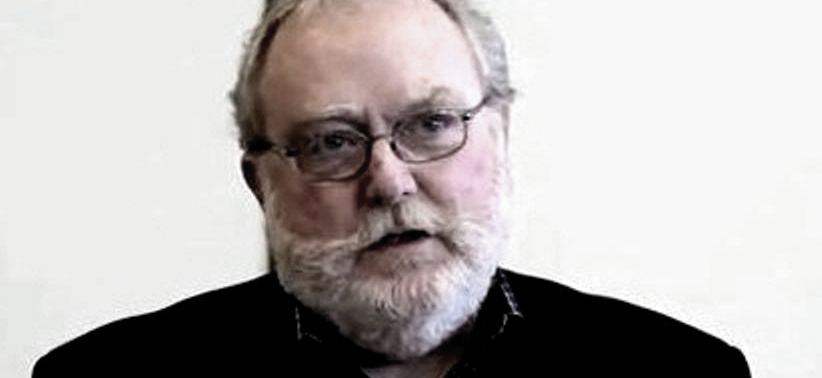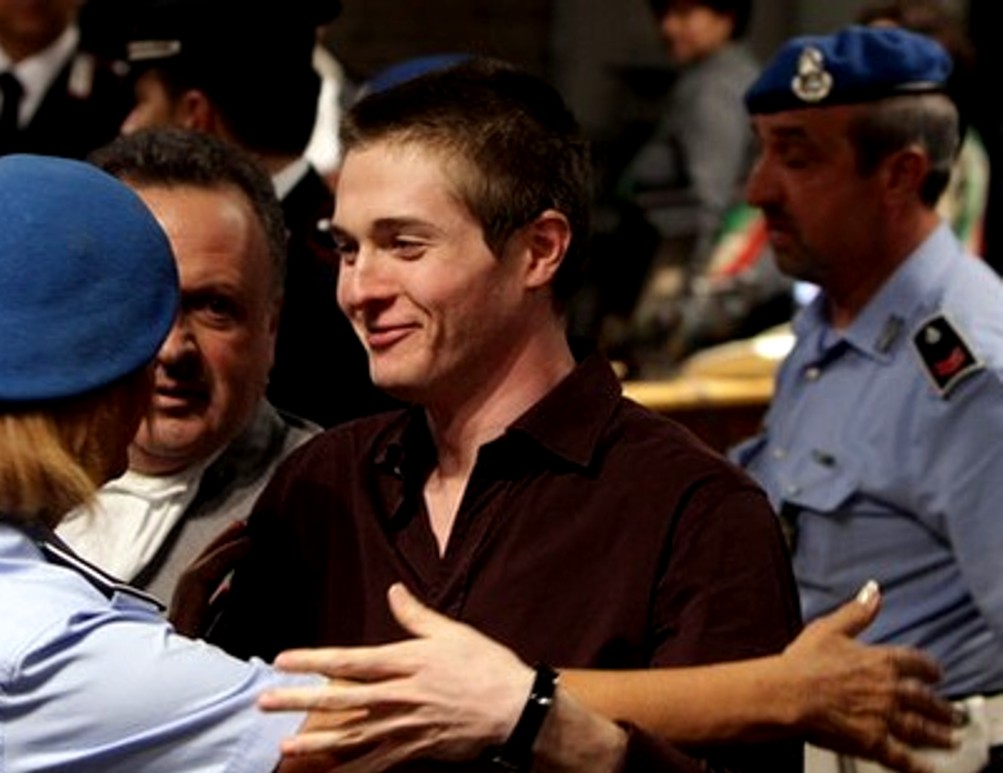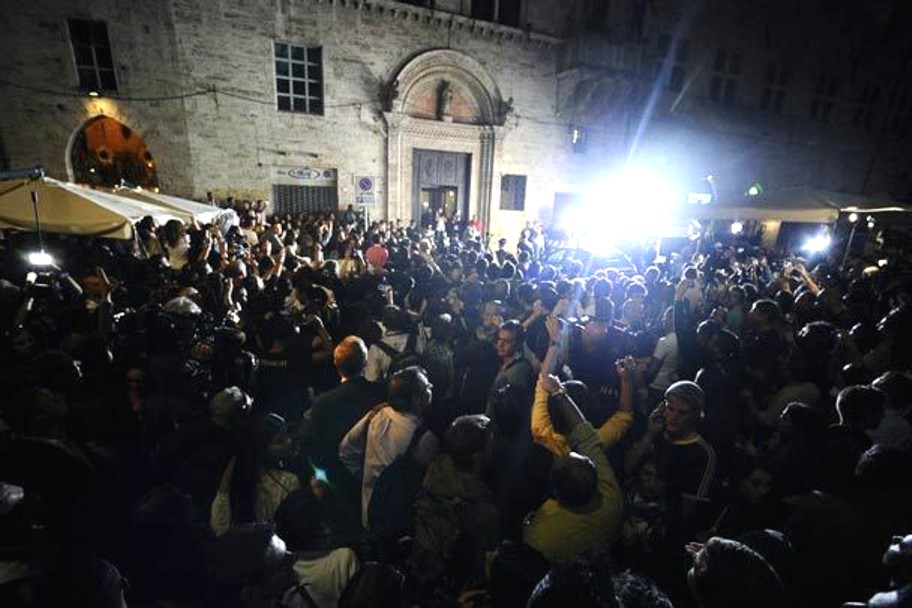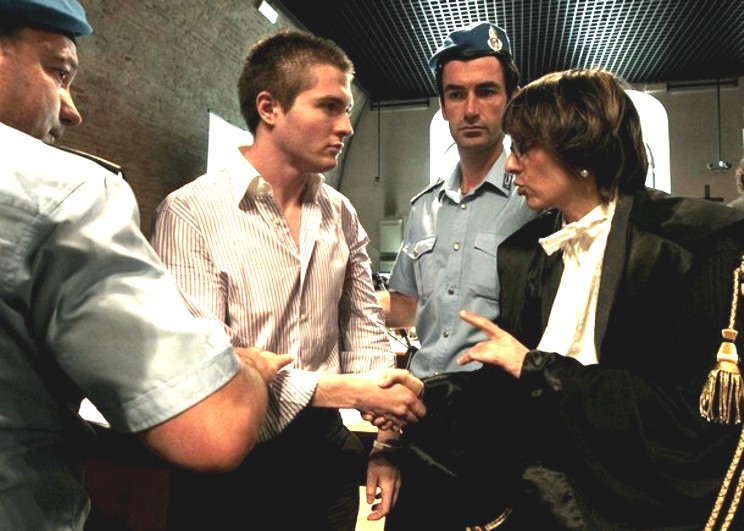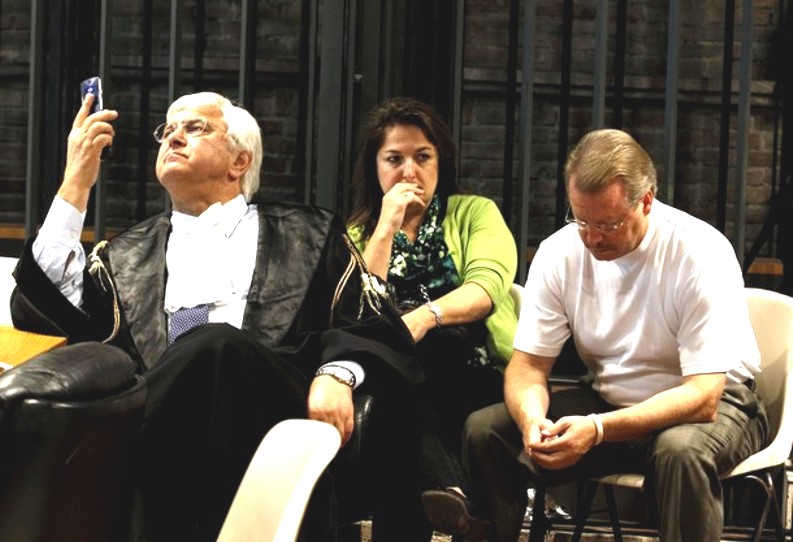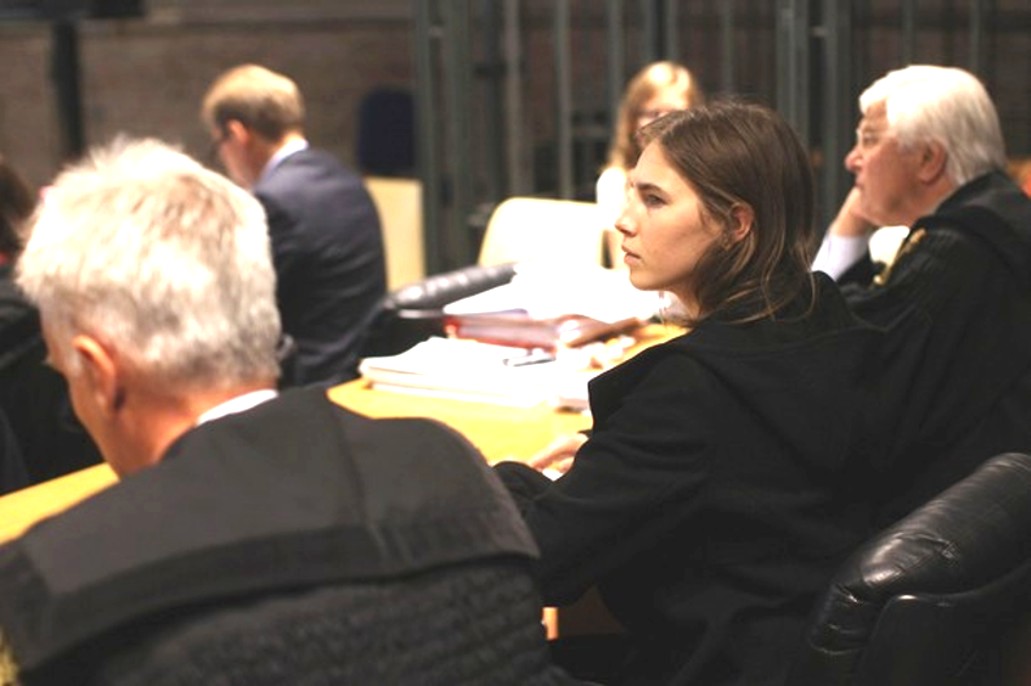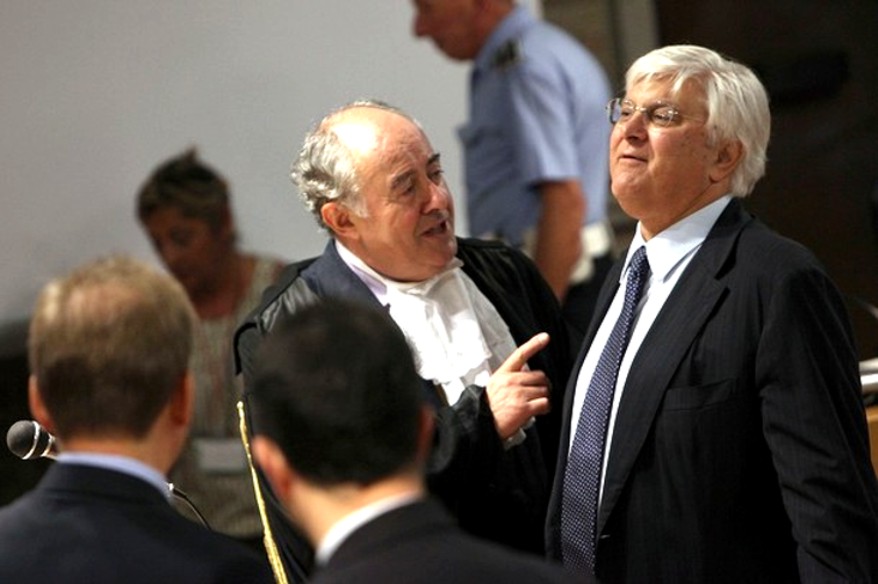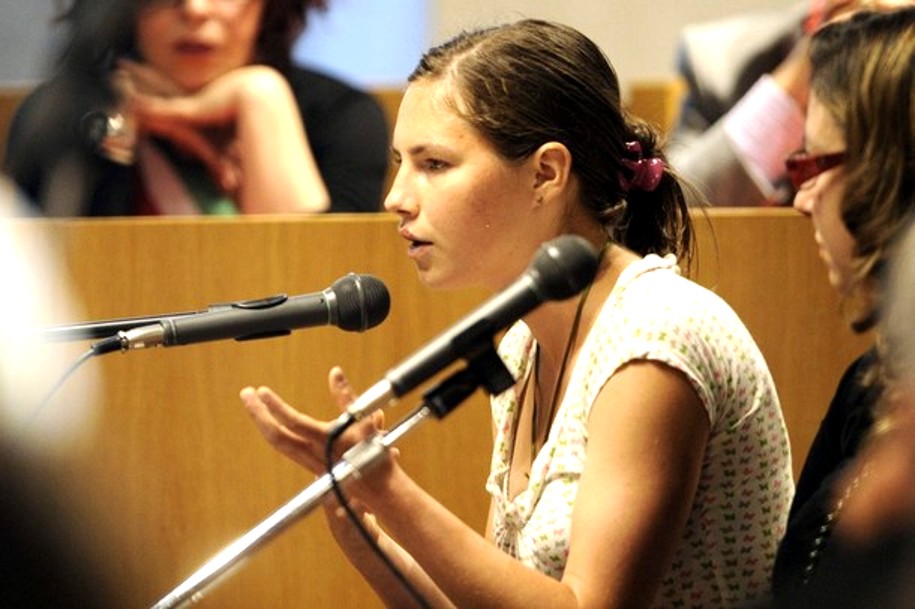
Category: The officially involved
Saturday, October 22, 2011
Knox PR Manager’s Premature Crowing, Years Before Judicial Process Ends
Posted by Skeptical Bystander
Fake News By Marriott™
At bottom here, please read the fine report by Heidi Dietrich on the lies-filled world of David Marriott.
Now that the supertanker has pulled into port, the story about the creation of the narrative can finally begin to be told. We live in a world that needs an endless supply of stories. Just ask Scheherazade - whatever gets you through the night is alright.
In the world of Marriott as this opinion writer notes the media operates on the assumption that the American Public can’t remember further than the day before yesterday.
And in the business journal treatment of the Marriott PR Triumph (aka The Snow White Job), someone has forgotten that the script a month ago stated that there was no PR campaign and anyone who believed there was one was nothing but a guilter and a hater.
But now all that is swept aside.
Now Mr. Marriott, who looks like a cross between Colonel Sanders and a dumpling, can lumber up to the stage and accept kudos from one and all. After all, he was hired three days after Knox was arrested, for financial terms neither side will disclose.
See below for how the business journal spins the yarn:
Like I said, if you have the right publicist, anything is possible! The right publicist can make water flow uphill and, once that has happened, can advise you on the best way to make the money you will need to pay more for his services.
That’s the phase we’re in now, folks. If you ever get in trouble, this is the guy you want working for you, feeding chicken shit to the masses and calling it chicken delight.
Puget Sound Business Journal
Seattle PR firm reveals efforts to free Amanda Knox
By Heidi Dietrich – Contributing Writer
Oct 21, 2011, 8:00am
David Marriott never visited Amanda Knox during her four years in an Italian prison. He met her this month, when she stepped off a plane in Seattle.Yet for Knox and her family, Marriott was as important a player in her ordeal as anyone in the courtroom. As Knox’s publicist, beginning three days after her arrest, Marriott worked to convince the international public that she did not murder her British roommate while studying in Perugia.
“Hiring him was one of the smartest things we ever did,” said Curt Knox, Amanda’s father. The partnership between the Knox family and Marriott illustrates the potential of a public relations campaign to shift sentiment — and possibly even influence a verdict. With Amanda Knox safely back on American soil, Marriott and the family can now provide a behind-the-scenes glimpse of what went into the campaign.
Marriott, principal in the Seattle PR firm Gogerty Marriott, took on Knox in the face of a global onslaught of negative press. Once Italian authorities arrested the University of Washington exchange student on suspicion of killing Meredith Kercher, Knox was labeled a vicious “she-devil” and sex-crazed “Foxy Knoxy” in media around the world.
By enlisting her friends and family, and targeting specific news organizations to tell the family’s story, Marriott eventually helped reshape how the world saw the young American. And now, with Amanda safely back home in West Seattle, Marriott turns to a new set of challenges.
Tabloid photographers snap Amanda’s errands and walks. Marriott said he and the family don’t
try to hide her from the paparazzi, as that would just make her home another prison.Then, there’s the need for money. Curt Knox and Amanda’s mother, Edda Mellas — they are not
married to each other — have each said they’ve drained their retirement funds, taken out second mortgages and accrued credit card debt to pay for Amanda’s defense. So, in this new phase, lucrative media deals will be a consideration.At Marriott’s downtown Seattle office, he fields inquiries from book agents, screenwriters, news shows and movie studios. All want the Amanda Knox saga for their own. Some are offering big bucks. Marriott and the Knox family will be considering the offers, Marriott said — likely in a couple of weeks.
“There will be financial opportunities,” Marriott said. “I’ll be there to walk them through the opportunities.”
Both Marriott and Curt Knox say that Amanda wants to tell her story.
“Amanda will speak for herself,” Marriott said. “There are a bunch of options available to her, and the question is which will give her the chance to tell her story with dignity and class.”
Desperate for help
Though Marriott didn’t know it when he took on the project, the Amanda Knox trial was to
become the longest and most difficult project of his career.After Amanda’s arrest on Nov. 6, 2007, family members were bombarded with media requests.
Nobody knew how to handle them.Curt Knox reached out to an executive at the Macy’s Northwest regional office in Seattle, where he was employed. He asked for advice on a publicist who could handle a case of such magnitude, and the exec recommended Marriott. The PR veteran had made a name for himself in crisis management situations, such as the Alaska Airlines Flight 261 crash in 2000 that killed all 88 passengers and crew.
Marriott signed on with the Knox family three days after Amanda’s arrest, for financial terms
neither side will disclose. Marriott immediately put out a press release directing all media and interview requests to him. It was, Curt Knox says, instant relief.Beyond giving the family breathing room, Marriott needed to develop a long-term media
strategy. The initial negative press reports on Amanda happened so quickly, Marriott was left
trying to redefine her persona. Many stories painted her as promiscuous and irresponsible.“Our job was to try to correct the misconceptions out there about who Amanda Knox was,”
Marriott said. “The British and Italian tabloids created this horrible person, and I felt it was our responsibility to tell the truth.”Anne Bremner, counsel for Friends of Amanda Knox, said Marriott faced an uphill challenge
when he took on the case. (Friends of Amanda Knox, a group of supporters, formed in 2008 to
run social media campaigns and raise money for her case. Marriott was not directly involved with the group.)“The initial perceptions were that it was a slam-dunk case against her,” Bremner said. “The most important thing for Dave was to shine light on the fact that there was no evidence.”
Initially, the Knox lawyers asked her parents to not give interviews, as they didn’t want it to seem as though the family was trying to prejudice the judge and jury.
And so, Marriott turned to Amanda’s friends from the UW and Seattle Prep. He enlisted them to
talk to the media about the diligent student and loving friend they knew. In the process, Marriott began to truly believe in Amanda Knox himself.“I really came to strongly believe her innocence,” Marriott said. “Kids don’t do a 180 on you
when they leave home. The stuff in the tabloids simply didn’t make logical sense.”Then, in early 2008, Marriott took the publicity campaign one step further by persuading
Amanda’s lawyers to allow the Knox family to give interviews.“I said, ‘We are getting killed here,’ ” Marriott said. “We need to have Mom and Dad.”
The lawyers consented, but cautioned Amanda’s parents against talking about case specifics.
They should instead focus on their daughter’s true personality. The Knox family, who’d felt
silenced for months, couldn’t wait to begin.“There was absolute character assassination,” Curt Knox said. “The only thing we could do as
parents was get the truth out there.”Amanda’s sister told a story about Amanda carrying a spider outside because she didn’t even
want to hurt an insect. Both parents gave interviews — starting with ABC — about their
daughter’s achievements in the classroom and soccer field.“Amanda’s mom and dad were untiring in their willingness to do whatever I recommended,”
Marriott said.Early on, Marriott decided that the national TV news magazine shows would be the best vehicle.
The format allowed for in-depth investigations and brought credibility to the family’s case.
“The news magazines were key to getting the story out on who Amanda really was,” Curt Knox
said. “That was a very smart maneuver on David’s part.”Marriott believes the turning point in public perception came in February 2008, when “20/20”
aired a program on Amanda Knox. ABC had sent its own expert to Perugia to examine the
evidence, and the resulting show raised serious doubts about the case against her. Several months later, “48 Hours” did the same thing.“‘48 Hours’ and ‘20/20’ were better partners for David Marriott and the Knox family than many
other media outlets,” said Barry Mitzman, professor of communication at Seattle University.“You can’t put the family through hundreds of interviews, so you need to make good choices.”
Marriott continued to deal with all media surrounding the case, but he never thought it would last as long as it did. In December 2009, an Italian court found Amanda Knox guilty of Kercher’s murder. Marriott believed the closing arguments of her lawyers were strong, and felt as shocked as her family at the verdict.“You can’t help but feel sunk,” Marriott said.
Marriott didn’t dwell on the disappointment. He continued to enlist supporters to rebut the
verdict.Finally, early this year, the court allowed an independent review of the DNA evidence used to
convict Amanda Knox. As testimony began to emerge on mistakes made in collecting and
analyzing the evidence, news stories began to shift significantly in her favor.On Oct. 3, the guilty verdict was overturned, allowing Amanda Knox to fly home to Seattle.
“The truth was my mission,” Marriott said. “The DNA review got us there.”
Whether Marriott’s efforts, and shifting public sentiment, influenced the Italian courts is up for debate. Marriott says it’s very hard to say if the mission to correct misconceptions about Amanda made a direct impact on the outcome. He noted, though, that the judge in the appeals trial opened with the remark, “The only thing we know for sure in this case is that Meredith Kercher is dead.”
“That signaled that he wasn’t buying into a lot of what had happened in the earlier trial,” Marriott said.
Coming home
When Amanda and her family arrived the next day at Seattle-Tacoma International Airport, a
huge crowd greeted her. Bremner marvels at the fact that many broke into applause when
Amanda walked into the room.“They were clapping for her, and they were all press,” Bremner said. “What a change from four
years ago.”The Amanda Knox story may remain the most consuming case of Marriott’s career. It’s rare,
Marriott said, to have this kind of public interest over such an extended period of time. As a result of the attention, Marriott has received inquiries from several other potential clients.Marriott counts more than 6,700 Google News alerts for “Amanda Knox” that arrived over the
four years. Most of those alerts contained links to three or more stories. And those are just the English language articles.“There’s just so much hunger for information with this thing,” Marriott said. Marriott has formulated a media plan for the days going forward, but he won’t discuss details. He plans to be ready if the prosecution appeals the acquittal. He also wants to help Amanda find the best vehicle to tell her story, and advise her on when to do so.
David Domke, who chairs the UW communication department, said there’s every chance to
make a positive impression when Amanda chooses to speak out.“My sense is that they have the opportunity for a lot of goodwill toward Amanda,” Domke said.
“The fact that that’s there after the incredibly negative coverage she initially received is just remarkable to me.”And Kathleen Fearn-Banks, who teaches crisis communications at the UW, believes Knox could
impart what she learned during her ordeal. For example, Marriott spoke to Fearn-Banks’ class
about the risk of online postings that could be misconstrued. In Amanda Knox’s case, media
people culled photos and writings from her MySpace account, including the “Foxy Knoxy”
nickname.“I’m hoping that the lessons our students learned may be taught by Amanda now in media
appearances and perhaps writings she may do,” Fearn-Banks said.And then there’s the curiosity factor. “People around the world really want to know her story,” Bremner said.
If it’s up to Curt Knox, the 68-year-old Marriott will remain part of that effort until his daughter has followed this saga to the end.
“He’s not retiring,” Curt Knox said, “until he’s done with this.”
Amanda Knox timeline
Nov. 2, 2007: Meredith Kercher’s body found in Perugia apartment shared with Amanda Knox.
Nov. 6, 2007: Knox arrested.
Nov. 9, 2007: David Marriott hired.
Feb. 1, 2008: “20/20” story.
April 10, 2008: “48 Hours” story.
Jan. 16, 2009: Trial begins.
Dec. 4, 2009: Knox found guilty of murder and sexual assault; sentenced to 26 years.
Nov. 24, 2010: Appeal trial begins.
June 29, 2011: Expert discredits DNA evidence.
Oct. 3, 2011: Court clears Knox.
Thursday, October 13, 2011
Long Lines For Any Amanda Knox Movie? Unlikely - Too Much PR Legacy Taints Her Brand
Posted by lauowolf

I’ve been thinking about the concept of the “blockbuster” movie, and the general marketing and all.
The problem is, as has been pointed out, that the PR to date has packaged the product of weeping Edda and her martyred innocent child. There are side excursions into the honor student, the young lovers, and the evil Italians.
And these have been attractive images to the public, providing an easy script for followers. The family was pretty good at staying on script - we’ve all marveled at their ability to seemingly lie themselves blue in order to keep the official story straight.
I won’t say it worked, because I don’t believe the PR effected the outcome of the trial. What it did do was finance itself, Knox’s lawyers, and a lot of travel by her family, as well as turn Knox herself into a closely-watched oddity and tabloid fodder for the rest of her life.
Edda terming the media “a curse” is rich indeed, since without the families’ deliberate choice to go down this road, the whole trial have been an obscure local matter, and with a verdict either way Knox could have held her head up high .
What the PR project has left behind it is another meaningless media hype, up for grabs. Amanda Knox _________ [your product name here].
Knox’s slander conviction and three-year prison term seriously stains things, and limits the options. As does the huge and poisonous ongoing campaign to flame the growing number who think that Meredith has been ill-served. .
It is difficult for them to celebrate the Italian court for getting it right and releasing her, and still argue at the same time that they are Italian and medieval and found “poor her” guilty of slandering an innocent black man.
Especially since that part of things is pretty open and shut.
Besides, even arguing about it opens the door to the rest of what she said in that confession, and they certainly do no want people thinking about her admitting to being at the cottage. The less said of that the better.
So. Does her story have the makings of a Hollywood blockbuster? Probably not.
For one thing, the producer types would have to know that the case is still live. The public won’t be keeping track of that, or at best will be considering it a case of the prosecutor continuing to seek revenge.
But people looking to invest millions of dollars in movies tend to go into all the fine print.
And the looming third trial in 2011 is just the kind of complication they are likely to want to avoid.
And there’s just too much inconvenient information floating around about the story.
Finally, there really isn’t that much “there” there with Amanda Knox herself. What would her storyline be, anyway, and who does it appeal to?
- Is it the story of the young lovers, AK and RS? Nah, AK and RS are not going to complete the story arc for them, so no drama-romance. And you can’t substitute the Seattle boyfriend, because he’d look like a fool.
- Is it the story of Edda, getting her daughter back, a la Not Without My Daughter? Nah, Amanda is getting a bit old for that storyline to work. The PR played out this line in Amanda’s absence, so that it is already stale, and besides, the target audience is wrong. The Lifetime movie worked that thread, and it didn’t really do all that well.
- Is it a story of Amanda suffering, arrested, in prison, on trial? Nah, there really isn’t much filmic going on there. Arrested people end up sitting in rooms, and prison is boring. Even if they wanted to spend a lot of time on AK giving the performance of her life in court, they’d have to deal somehow with the accusations and evidence. And they really, really don’t want to do any of that.
- Is it the story of Amanda herself? Nah, the PR has reduced her to such a little painted doll that there isn’t anything to be done with her. Seriously, weekly mass and the prison choir? Or hanging out with the middle-aged married Italian political type? Who wants to watch a movie of that? They’ve set her up as a frail, pale victim, and it is difficult to create an entire movie focusing on someone being done to, rather than doing.
You can see how they wrestled with the Amanda problem in the works already made or being discussed. The Lifetime movie revolved, emotionally, around Edda’s suffering. The other movie idea that was floated was to feature a reporter-detective (Colin Firth) who uncovers a conspiracy or something in Perugia.
In both of these, Amanda herself is only a McGuffin, an excuse for other people’s emoting, or detecting.
Unless they wanted to portray the REAL Amanda, warts and all? I do think there could be quite a compelling portrayal of the initial behavior, the lying, the family tensions, her downward arc in Perugia, and the final unbelievable acquittal.
Hitchcock could do it - think of Marnie, or Vertigo.
But I can’t see Amanda or her families cooperating with such a project. No, the cashing in will have to be the interviews (QUICKLY) and a book project. They’ll shop around for the best advance and slap something together fast.
But dont expect the movieplexes to be overwhelmed.
Sunday, October 09, 2011
“Wrong To Capitalise On Any Murder. Not Just For Us, But For Anyone”
Posted by Peter Quennell

Helen Weathers reports on a face-to-face interview with Meredith’s father John in the Daily Mail.
On John’s memories of Meredith which haunt him daily:
“˜Meredith was extremely intelligent and humorous as a child. She had an almost adult sense of humour, and was always very thoughtful and considerate “” sensitive to other people,’ says John, who was divorced from Meredith’s mother in 1997 after 20 years of marriage.
“˜Meredith was very witty. She had quite an original line in humour, what you might call a barbed wit, I suppose, but not hurtful; never hurtful.
“˜I remember once coming back from a holiday in Egypt and showing Meredith a photograph of myself wearing a floppy sunhat I’d bought. She took one look and said: “Dad, just tell me you didn’t pay any money for that hat.”’
Amanda Knox cries following the verdict that overturns her conviction and acquits her of murdering her British roomate Meredith Kercher, at the Perugia court in ItalyLike her father, Meredith loved the relaxed Mediterranean way of life. Indeed, her love of Italy started on family holidays to Rimini and continued on school trips and exchanges. John was not surprised when she chose to study Italian and European studies at Leeds University.
“˜The irony was that after two years at Leeds she found they’d accidentally put her on a three-year course which would have excluded the year in Italy, so she fought to get put back on the four-year course and get out there,’ says John.
“˜She had the choice of going to Rome, Milan or Perugia. While she loved Rome and would have liked Milan, she felt she’d have a better chance of making friends more easily in Perugia than in a large city.
“˜Meredith was very excited about going. For the first three days she stayed in a small family-run hotel until she found the cottage. She told me her room was a bit small, but the views were beautiful.’
John last saw his daughter a month before she was murdered. She’d returned to Britain on a flying visit to buy some clothes for the Italian winter and arranged to meet her father for coffee at an Italian restaurant in Croydon.
“˜Meredith had bought a new pair of boots which she wanted to show me. I think they were leather with a small heel. And that’s the image of Meredith I want to remember: my daughter smiling, laughing and showing me her new boots.’
On the media speculation about the megabucks that Amanda Knox and her clan could make.
“˜I think it would be more sensitive to Meredith’s memory if Amanda Knox maintained a low profile,’ says John, a freelance journalist, in his first in-depth interview.
The Amanda Knox cult insults my Meredith’s memory: Victim’s father says it’s wrong to capitalise on murder in his first interview since the verdict
“˜I don’t want to say anything confrontational, but I believe it is wrong to capitalise on any murder. Not just for us, but for anyone.
“˜This cult of celebrity is demeaning to Meredith’s memory, disrespectful. I don’t think Amanda Knox has actively sought out celebrity status; I think that has been created for her. But then again, she hasn’t actively rejected it.
“˜It is distressing that all this will go on for a long time and that all the focus is going to be on the defendants for some time yet.
And at the shock of the U-turn first appeal verdict
“˜I thought the judge might uphold the conviction but possibly reduce their sentences to be more in line with Guede’s “” but not this,’ he says.
“˜We thought the original evidence would be upheld, so it is a huge shock. You hope the appeal jury is going to recognise what was established in the first trial. In this case, it wasn’t.’
Another Spotlight on Raffaele Sollecito’s Different Versions of Events
Posted by willsavive
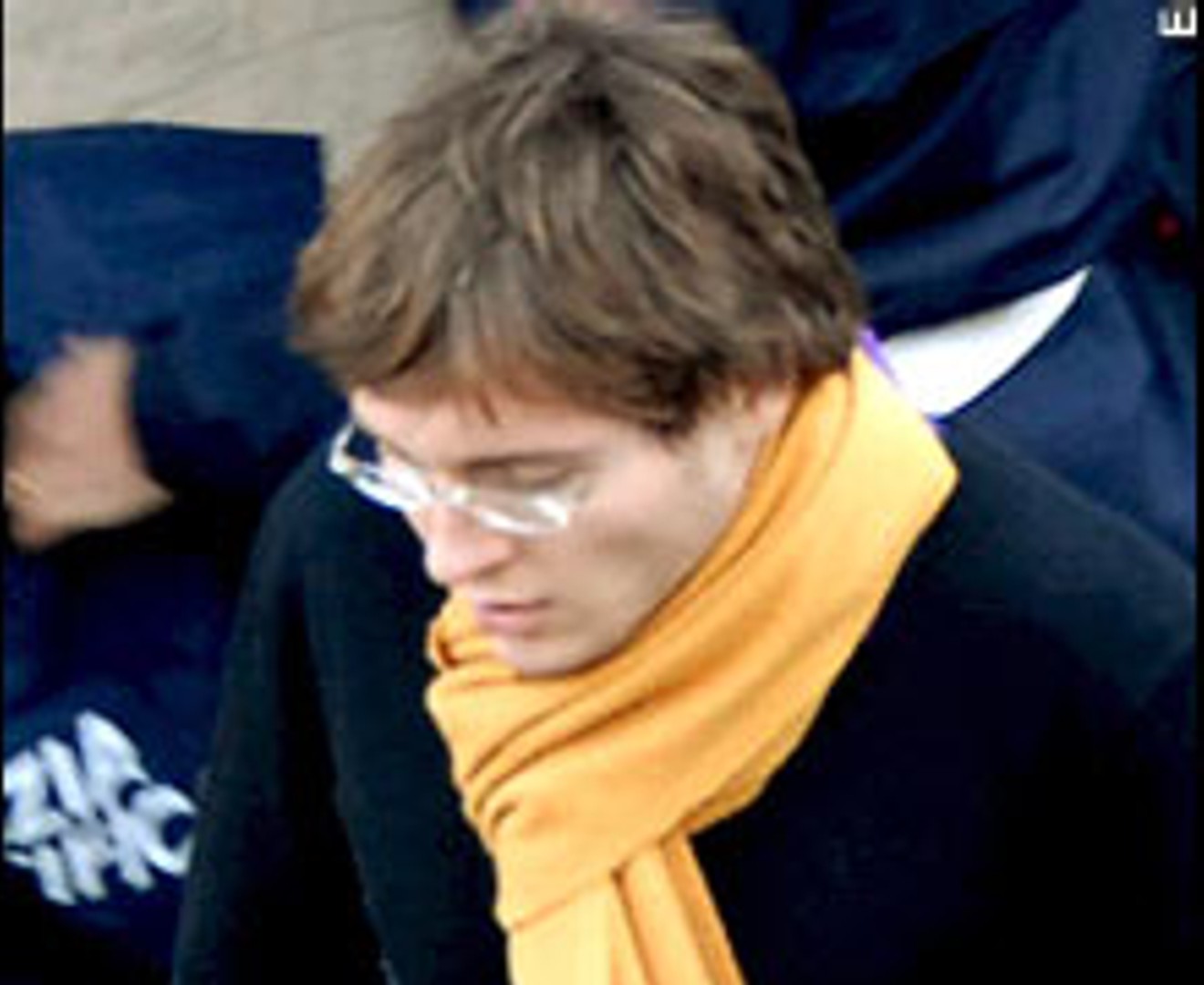
Much of the talk about the Meredith Kercher case has been on Amanda Knox, with her boyfriend at the time, Raffaele Sollecito, getting a media pass.
Aside from Knox’s voluntary spontaneous statement to police claiming that she may have been at the home during the murder and heard Meredith screaming while Patrick Lumumba was killing her; Raffaele’s versions of events on the evening of the murder are undeniably the more conspicuous of the two suspects. Perhaps that is why he decided not to testify!
Story # 1
Just two days after the murder, Raffaele Sollecito gave an interview to Kate Mansey of the UK’s Sunday Mirror in which he explained his first version of the events.
“It was a normal night. Meredith had gone out with one of her English friends and Amanda and I went to party with one of my friends.”
Raffaele has never identified this imaginary friend or party since this interview, nor has he ever spoken of this version since.
Raffaele also claims in this interview that Knox was afraid when she noticed that spots of blood in her bathroom, and “she ran back” to his flat in fear. This is quite contrary to what Knox said on the witness stand during trial. From Amanda Knox’s testimony (June 12, 2009):
“At first I thought they had come from my ears. But then when I scratched the drops a bit, I saw they were all dry, and I thought “˜That’s weird. Oh well, I’ll take my shower.’”
After that, she dried her hair, got dressed and calmly returned to Raffaele’s apartment.
And from Amanda Knox’s testimony (June 12, 2009):
“”¦Then he came out and we made breakfast, and while we were preparing it and drinking coffee, I explained to him what I had seen, and I asked him for advice, because when I went into my house, everything seemed in order, only there were these little weird things, and I couldn’t figure out how to understand them.”
This is hardly the panicked girl that Raffaele described.
A few days after the interview, police intercepted a call between Raffaele and his father. During the call, according to police, Raffaele’s father said to him, “Raffaele, don’t walk about with a knife; if police find it on you who knows what they may think.”
Raffaele responded by saying, “Well, they have already questioned me and they didn’t find it on me, those stupid policemen.” Raffaele was speaking of a small flick-knife that he was known to carry around. This conversation prompted police to call him in for further questioning, which ultimately led to his and Knox’s arrest.
Coincidentally, experts for the defense argued that the Marietti knife that the prosecution offered up as the murder weapon was too big to have caused the wounds on Kercher’s neck, and that a smaller knife, such as a flick-knife probably caused the fatal wound.
Story # 2
Raffaele told police that he and Knox stayed at his flat the entire night of November 1, 2007 (night of the murder).
Story # 3
During his November 5, 2007 interrogation and subsequent arrest, Sollecito wanted to come clean, and he told police that his previous version to them was “un sacco di cazzate” (a load of rubbish).
“In my former statement I told you a load of rubbish because I believed Amanda’s version of what happened and did not think about the inconsistencies.” (The Times, 7 November, 2007).
In this version, he told investigators that he and Knox returned to his flat at approximately 8:30pm, and that Knox left his apartment, while he stayed there, and she returned at around 1:00am. He claimed that he believed that she went to see if she had to work that evening.
This was seemingly an attempt to exonerate himself from any culpability, as Knox had received a text message from her then boss, Patrick Lumumba, at 8:19pm that evening informing Knox that it was slow at the bar and she would not be needed to work that evening.
Story # 4
Some like to point the finger at police and say that they were forceful during their interrogations with Knox and Sollecito and that is why they both changed their stories so much.
However, after his arrest, Raffaele wrote several letters to his father while in prison. One letter to his father explained in detail the version above. This was written under no duress.
In the letter, Raffaele explains to his father that he and Knox had arrived at his flat at about 8 ““ 8:30pm on the night of the murder. “Amanda had [then] left for work,” he writes, but he could not remember how long she was gone””but he writes that he is “certain” that Knox had stayed with him the “entire night.”
Explaining Amanda to his father in the letters, Raffaele wrote of her:
“She lived her life like a dream, she was detached from reality, she couldn’t distinguish dream from reality. Her life seemed to be pure pleasure; she had a contact with reality that was almost non-existent.”
Then, he shows uncertainty whether or not Knox had committed the murder (or knew something about it) and blatantly calls her a liar…Raffaele writes to his father:
“I try to understand what Amanda’s role was in this event. The Amanda that I know is an Amanda who lives a carefree life. Her only thought is the pursuit of pleasure at all times. But even the thought that she could be a killer is impossible for me. I have read her version of events. Some of the things she said are not true, but I don’t know why she said them.”
Tuesday, October 04, 2011
Media Reaction Commences: What Is It About Amanda Knox…
Posted by Peter Quennell

Media can be a fickle friend. Big bucks may now be dictating a U-turn. One early indicator?
We should be happy for her, the innocent victim of this terrible miscarriage of justice.
Yet there is something disquieting about Amanda Knox, something that slightly chills the blood. Those piercing blue eyes, as cold as the steel of the knife that slit Meredith Kercher’s throat, have hardly flinched during her court appearances.
Not since Lindy-the dingo-did-it-Chamberlain was cleared of murdering her baby has a woman so divided public opinion.
Amanda’s prison diaries reveal an astonishing calmness and self-belief. While most 20-year-old girls falsely accused of a vile sex murder would be in pieces, she was planning her 21st birthday party, right down to the guest list.
There is hardly a mention of the brutal murder of her friend in the bedroom next to her. It’s all about Amanda.
Even The Independent’s Peter Popham is pouring cold water on the parade. Helping to find “the real killers” may be a way to help stem this tide.
Monday, October 03, 2011
Knox And Sollecito Declared Not Guilty But With Angry Booing Outside The Courtroom
Posted by Peter Quennell
Twentieth Appeal Session: Translated Transcript Of Amanda Knox’s Final Plea To The Court
Posted by Peter Quennell
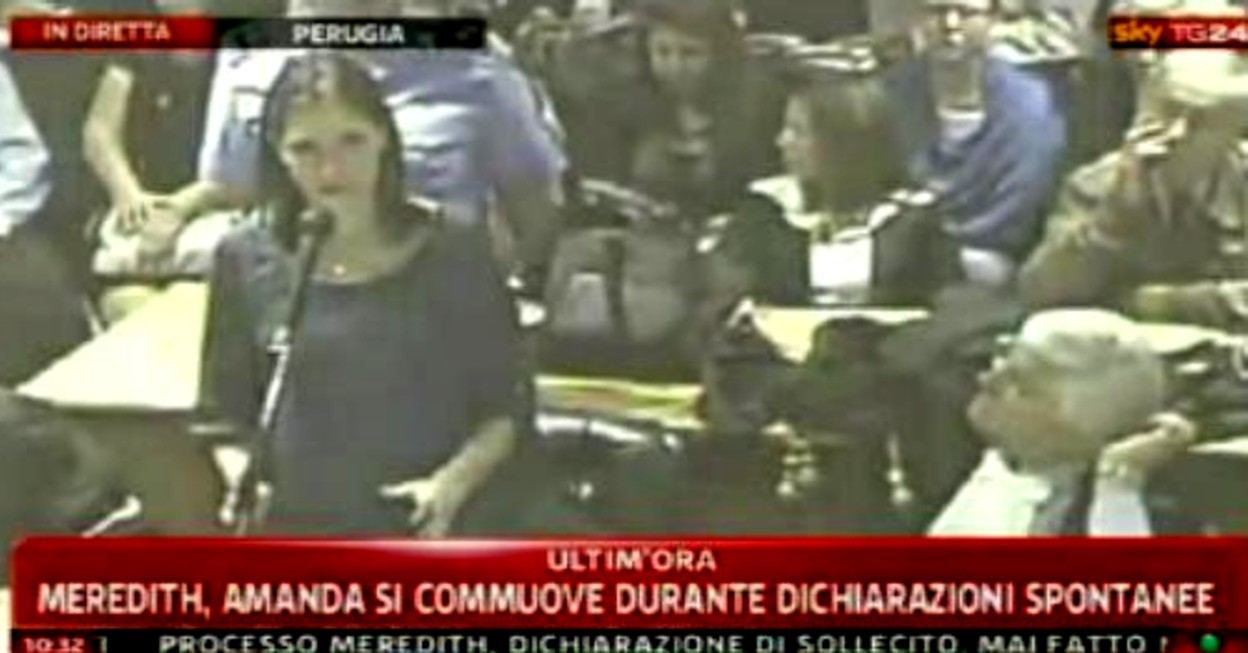
The image above and Knox’s remarks below are from one of the live broadcasts of the pressroom feed.
Members of the court. Many times people have said I am some other person, people don’t understand whom I am. The only thing different from four years ago is what I have suffered. I lost a friend, a girlfriend, in the most brutal way in the most unexplained manner.
My trust in the police authorities has been betrayed. I have had to dealt with unfair and unfounded charges. I have paid with my life for things that I did not commit.
Four years ago I did not know what tragedy was. I have never faced so much anger before. I didn’t know how to interpret it. How did we react when we found out Meredith had been killed? I did not believe it. How was it possible?
Her bedroom was next to mine. She was killed in our home. If I had been there that night I would have died. The only difference is, I was not there. I trusted the police’s sense of duty and trust. I trusted them completely. I was betrayed on the night of November 5. I was manipulated.
I am not who they say I am. I am not violent. I don’t have a lack of respect for life. And I did not kill. I did not rape. I did not steal. I wasn’t there at the crime scene.
I had good relationships with everyone who lived in my flat. We all had good relationships. We helped each other. I shared my life, particularly with Meredith. We were friends. She was worried about me. She was very kind to me.
I have never run away from the truth. I insist after four desperate years, that our innocence is true and needs to be recognized. I want to go back home. I want to go back to my life. I don’t want my life and my future taken away from me for something that I didn’t do.
I am innocent. We do not deserve this. We never did anything to deserve this. I have the utmost respect to this court and the care that it has shown. Thank you.
Is The Raffaele Sollecito Defense Team About To Separate Him From A Radioactive Amanda Knox?
Posted by Peter Quennell
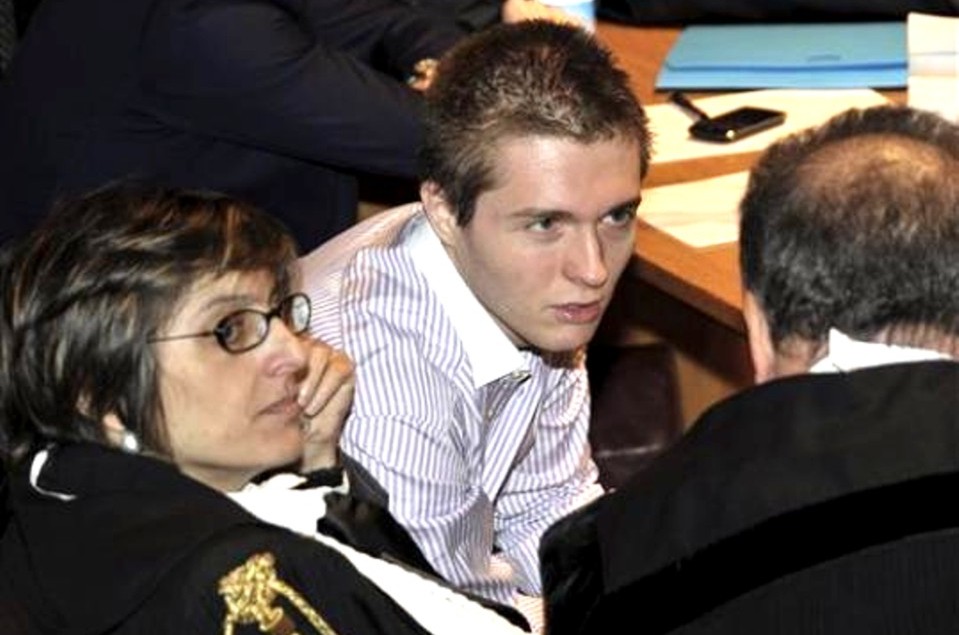
Sollecito has at least five advantages over Knox in what may be the final day of court tomorrow.
First, the smartest and most influential of all the lawyers in MP Giulia Bongiorno. Second, a relatively attractive family which has run a low-key smiling campaign. Third, relatively little evidence (the bra clasp and footprint) placing him at the scene of the crime and unlike Knox no alibi that says he was there.
Fourth, no obvious motive for either the murder or the cleanup compared to the many possible motives for Amanda Knox. And fifth, a weak wishy-washy personality on which Bongiorno has already played, casting Knox as the lead player in the drama and Sollecito as either accidentally there or not at all.
The mood does seem to be moving against Amanda Knox now as the extreme arrogance of the million dollar campaign sinks in. And if her “spontaneous” remarks to the court tomorrow follow her usual pattern, they will yet again make her look callous and concerned only about herself.
Several reports are out now in Italian harking on these themes. This report by the Associated Press with a possible nudge from the Sollecito team gives a sense of what the Italian reports are saying.
Even in Sollecito’s native Italy, it is Knox who commands the most media attention. Two prominent celebrity and gossip magazines, “Oggi” and “Gente,” put Knox on their covers during the final week of arguments in the appeals trial, and newspapers characterize him as being in the background.
Not even prosecutors have portrayed Sollecito as the main protagonist in the murder of Meredith Kercher on Nov. 1, 2007. According to their version, Sollecito held Kercher from behind while Knox stabbed her and another man tried to sexually assault her. Ivorian immigrant Rudy Guede was convicted in a fast-track trial and saw his sentence cut from 30 years to 16 years on appeal.
Attention during the investigation focused intensely on the two young female roommates as the world and prosecutors searched for a motive. Knox was portrayed as sexually promiscuous and lacking inhibition, while at the same time working hard to support herself and trying to learn Italian; Kercher was depicted as more serious and studious, who had at the end of her life began to chafe at her American roommate’s sloppiness.
The good girl/bad girl dichotomy drove headlines across the globe, while Sollecito “” the mild mannered boyfriend “” was largely overlooked in a supporting role.
It’s a role that his defense lawyer plays up. Sollecito is the son of a wealthy doctor from southern Italy who hired a crack legal team to defend his son. It’s led by Giulia Bongiorno, who defended former Italian Premier Giulio Andreotti on charges of mafia association.
“It’s not by chance that Raffaele arrived in this trial as the boyfriend. Nothing connects Raffaele to the crime,” Bongiorno said in her closing arguments last week. “With a girlfriend, you usually get a family. Raffaele got a murder.”
She said the few pieces of evidence in the “Amanda-centric” trial relate to Knox, not to Sollecito. “Nothing connects him to the crime,” Bongiorno said.
Friday, September 30, 2011
Nineteenth Appeal Session: The Prosecution Seems To Be Looking Confident In Court
Posted by Peter Quennell
Wednesday, September 28, 2011
Pseudoinnocence: Is This Possibly The Predicament Of Amanda Knox?
Posted by Vivianna
In a dissertation titled Pseudoinnocence ““ An Invitation To Murder, Barbara Shore explores the phenomenon of “pseudoinnocence” in American culture as an inadequate response to the “conflagration of violence that encircles us today.” These are her introductory words:
“America is a country long haunted by its pseudoinnocence, by its blinding prolonged naivete. We are a culture that closes our eyes to all that is too painful to see, persuading ourselves that we have escaped, that we are neither interdependent nor vulnerable, or that we are victims.
We cannot come to terms with our own unwitting complicity in the destructiveness brought to ourselves or others. Capitalizing on such naivete, we fail to see how such “˜innocence that cannot include the demonic becomes evil’ (Rollo May 50).” (Dissertation Abstracts International Section A: Humanities and Social Sciences Mar, 2001 Vol 61(9-A))
Ms. Shores’ words, although published six years before the murder of Meredith Kercher even took place, represent an eerily accurate description of Amanda Knox’s predicament, even reflecting some of the terminology employed in Attorney Carlo Pacelli’s exposition on September 26, during the closing portion of the first appeal trial. As a reminder, Pacelli, who represents Patrick Lumumba in his civil suit against Knox, pointed out that Knox “has a split personality, fresh-faced, the daughter everyone would like, Saint Maria Goretti, and then with her histrionic side [she is] an impostor, she is a she-devil, satanic, diabolic, addicted to borderline behaviour.”
Although Pacelli’s words have been seen by some as too harsh, they carry a heavy implication mirrored in the above quote from Shore ““ that “innocence that cannot include the demonic becomes evil”; in other words, that if Knox cannot reconcile her two sides and seek atonement, she has no hope of redeeming herself as a human being.
I have argued before, in a comment posted here on the TJMK board, that Knox is not likely to make a confession in the near future due to the pressures exerted by her family’s innocence campaign. The innocence campaign is, in my opinion, just one of the factors which prevent Knox from admitting her direct involvement in the crime against Meredith Kercher.
The other factors may include her failure to reconcile the two parts of her persona (innocent, carefree, kind, compassionate young woman versus “diabolical” murderer) and perhaps a culturally-engrained inability to accept involvement in a destructive act. The discussion of these latter factors is perhaps best left to someone with formal training in psychology or sociology. What I would like to enlarge upon is my conviction that there is a direct correlation between the strength of the innocence campaign and Knox’s unwillingness to admit guilt.
I would like to draw your attention to a conversation between Knox, her mother (Edda Mellas), and her father (Curt Knox) which took place in the early days of the investigation, when Amanda had already been detained. This conversation will be well-known to those who have been consistently following this case as evidence that, in the early stages, Knox may have been inclined to give a confession. I have chosen not to include it, but it is readily available on both TJMK and PMF.
The reason why I believe this conversation to be so important is not only because it might contain the beginning of the confession, but also because it highlights the involvement of her family in defining her position. I would argue that, had Knox been left to her own devices, she might have cracked in the early stages and given an accurate description of that night’s events, saving both herself, her family, the victim’s family, and anyone involved in the trial considerable grief, time, money, and effort.
At that particular point in time, she may not have been as psychologically divided and conflicted, and she may have had an easier time accepting her criminal side and perhaps moving on to experience positive changes. It is, however, her parents’ firm belief in her innocence and in her inability to commit such a heinous crime that has consistently mired her in a difficult position.
As we well know, the Knox-Mellas family hired a PR firm, Gogerty-Mariott, to clean up Amanda’s image after unflattering stories started appearing in European tabloids. The PR campaign has grown exponentially from a few stories about Amanda’s childhood, complete with baby pictures, to what I consider to be a falsification of public opinion.
On the one hand, there is a concerted effort to offer inaccurate information about existing evidence (limiting the crime scene to Meredith’s room, stating that there is no evidence linking Amanda and Raffaele to the murder, pushing Rudy Guede as the “lone wolf” assassin, etc.), which is then fed to news outlets unwilling to do their own research and pushed upon the unsuspecting public via books, blogs, and forums. Then comes the even more insidious effort to falsify the public’s response to these stories, by hiring posters to write positive reviews for FOA books, post positive comments to inaccurate stories, and shout down any reasonable opposition.
Of course, this entire effort does not come cheaply, and rumors say that the PR campaign’s tab is around one million. This is an enormous debt to place on the shoulders of a young woman who already needs to contend with the guilt of having committed an incomprehensible, heinous, violent crime. While it is difficult to feel sympathy for any of Meredith’s killers, I find it impossible not to feel a certain amount of compassion for Amanda, who most likely never asked for this campaign to be initiated. How could she admit her role in this crime when a million dollars has already been spent to trumpet her innocence?
In addition to the material aspects, there are social and psychological aspects to contend with. While many of the FOA members are paid for their public appearances and statements (and may not harbor any personal opinions about the case), there seem to be individuals who are supporting Amanda’s innocence out of personal conviction. Some of them may have even donated money to help her family. How could she disappoint everyone who invested money and time into supporting her, from her own family to charitable strangers? How could she look them in the eye, after four years of lies and obfuscation, and admit that she was terrified of being punished, or incapable of seeing herself as a murderer?
Peter Quennell has suggested to me that this may be an example of “path dependence,” a concept used in both economics and social sciences to describe a scenario in which current actions and decisions are inexorably determined by past decisions. While my personal knowledge of path dependence is limited, I think that it is certainly applicable in this case and that it can be traced back to the prison conversation discussed before. During the conversation, Amanda’s parents indirectly communicated to her that the course had been set ““ that the legal team would handle all questions and that she was not to communicate her thoughts without supervision; also that a confession would be unacceptable because she was undeniably innocent.
As to why her family took this position, I think we can find the answer in the concept of pseudoinnocence ““ the inability to accept responsibility for and involvement in a terrible event, accompanied by a forced distancing from anything that could be considered troubling.
It is not a coincidence that Amanda has been consistently portrayed as a victim of the supposedly corrupt, medieval Italian justice system, as someone who has been “railroaded” in a “third-world” country, as her supporters want us to believe. It is more comforting to become a victim than to accept responsibility and acknowledge that Amanda’s problems may have started at home, long before she was on a plane for Perugia. I believe that the innocence campaign is not only meant to exculpate Amanda, but to also exculpate her family from any perceived contributions to the formation of a murderer.
As long as Amanda’s family continues to invest so much money and effort into supporting her innocence, and to maintain so much publicity around her case, I believe that any professional attempts to help Amanda admit her involvement will prove ineffective. This entire undertaking, combined with her own psychological dividedness and any cultural influences, is placing an enormous amount of unnecessary responsibility on Amanda and displacing a more appropriate type of responsibility.
Amanda, at this point, should feel responsibility towards Meredith and Meredith’s family primarily. While the murder itself cannot be reversed and no true solace offered, a confession would offer a certain amount of closure to those who knew and loved Meredith. Instead, Amanda’s sense of responsibility is being artificially redirected to not disappointing her own family and supporters, and to not betraying the trust they have placed in her innocence. Aside from being hurtful to the victim’s family, this situation is also damaging for Amanda herself, as it’s setting her on a path of continued “evil” rather than one of heal

